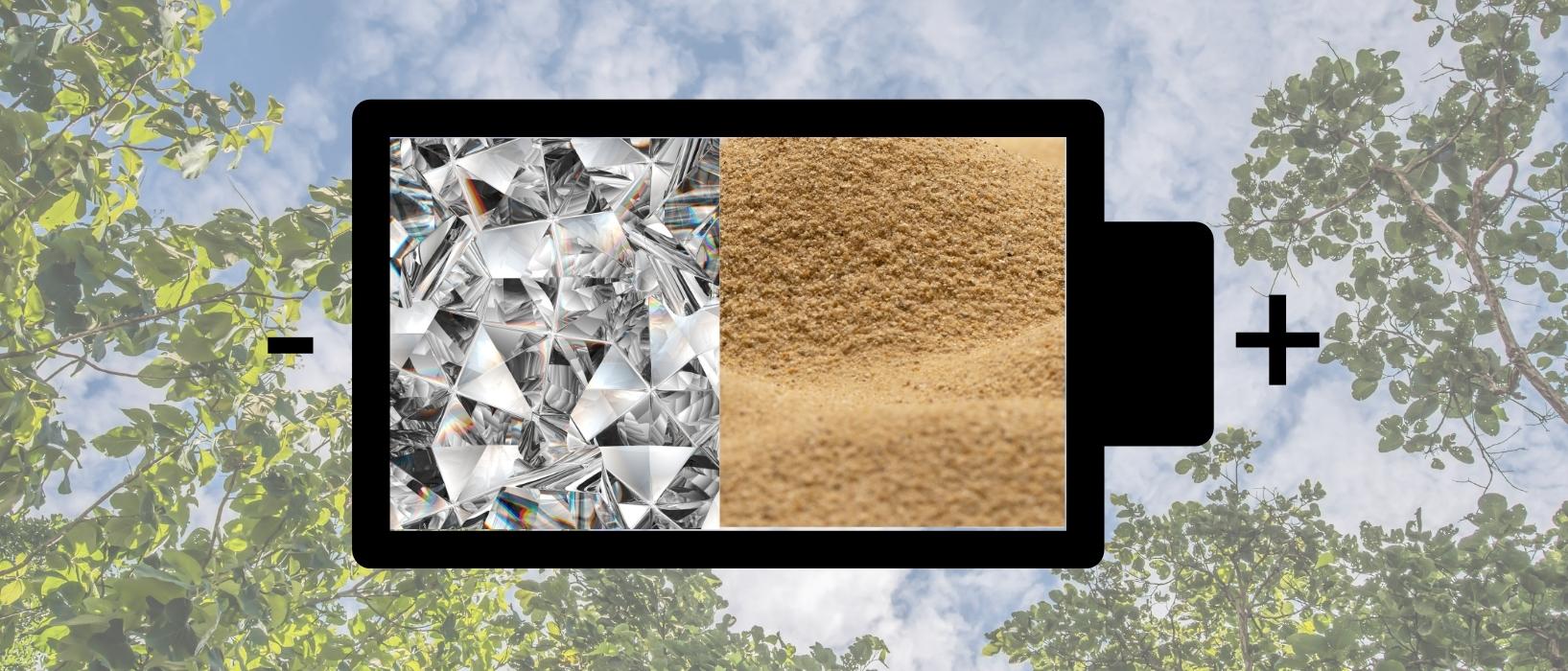
The global shift toward renewable energy has left research looking for new and better ways to store it over extended periods of time. While current batteries made using lithium and other earth minerals can do the job, this becomes unsustainable long-term due to the resources needed. Simply put, if we want to progress, we’ll need better, greener batteries.
Thankfully, progress is being made in this area. In this article, we look at two innovative ways of storing energy in batteries.
Nano Diamond Batteries From Nuclear Waste
California-based battery firm NBD believe they have a solution not just for our energy storage problem but another huge environmental issue: nuclear waste. They claim to have built an emissions-free, self-powered battery made entirely of radioactive with a life expectancy of 28,000 years.
This works by taking graphite nuclear waste (made entirely from carbon) before processing and transforming it into micro diamonds. When waste materials surrounded by the diamonds start to decay, they interact with the carbon to generate a tiny electric current. This means that rather than just storing energy, it can actually generate it.
Additionally, the business claims its battery is safe since it emits less radiation than the human body.
If it works, this power unit would never need charging and last a lifetime. They predict their nano diamond batteries could be employed for basic mobile devices, medical monitors, biological implants, industrial sensors, communication satellites, and might even deliver energy to remote regions.
“Think of it in an iPhone,” NDB’s chief strategy officer Neel Naicker offers. “With the same size battery, it would charge your battery from zero to full, five times an hour. Imagine that. Imagine a world where you wouldn’t have to charge your battery at all for the day. Now imagine for the week, for the month… How about for decades? That’s what we’re able to do with this technology. We’ve taken something that’s really harmful to the environment, a problem, and created energy.”
Many of NDB’s claims have been met with scrutiny and scepticism in the scientific community. Still, the device did pass two proof-of-concept tests recently at Lawrence Livermore National Laboratory and the Cavendish Laboratory at Cambridge University.
Now, NDB and its team will aim to produce a working prototype and believe they’ll have an operational model demonstrating these predictions within the next two years.
The World’s First Sand Battery
Working with a small power plant in the town of Kankaanpää in western Finland, researchers from Polar Night Energy have erected the first sand battery on a commercial scale, able to store power for months at a time.
Filled inside a tall grey silo are about 100 tonnes of sand, the same type used in construction. The storage device uses ‘resistive heating’ to increase the temperature of the air, which is then transferred to the sand. Since the melting temperature of sand is hundreds of degrees Celsius, the tower has a huge potential to store energy for many months, making it a viable long-term storage solution.
Currently, the battery powers the central heating system for the district. When energy prices are higher, the hot air in the battery can be used to warm the water and then pumped to offices and homes in the region.
The next question will be whether technology is scalable, especially with a few hiccups along the way since converting the heat back to electricity is not that energy efficient a process. Nevertheless, with countries such as Chine moving away from coal-fired power plants to nuclear, a sand battery could be the cost-effective and easy-to-implement system they need.
These might still be the first steps, but Polar Night Energy are confident that the method will be a massive success in the years to come.
Find out how Play It Green can help you or your business